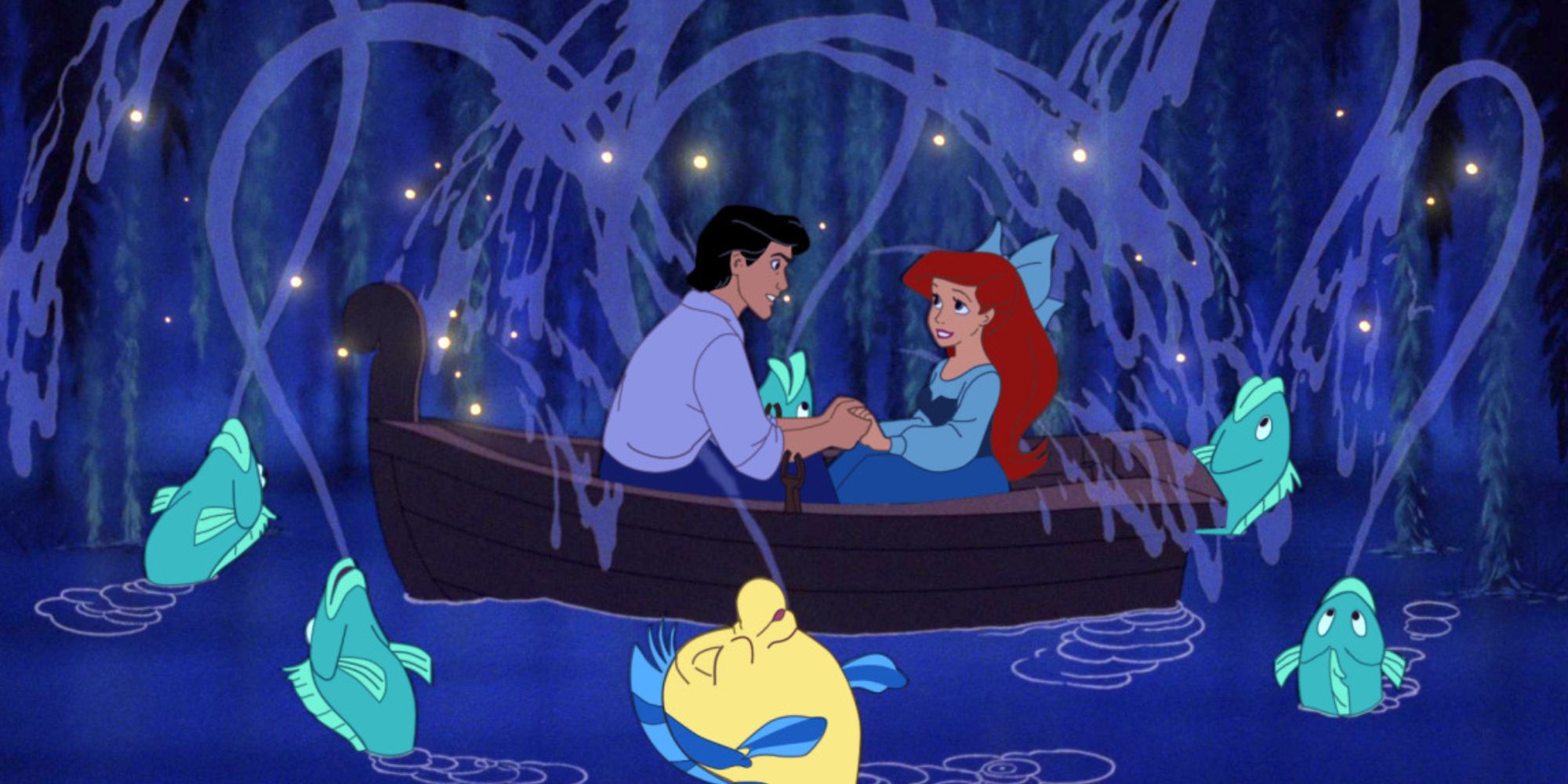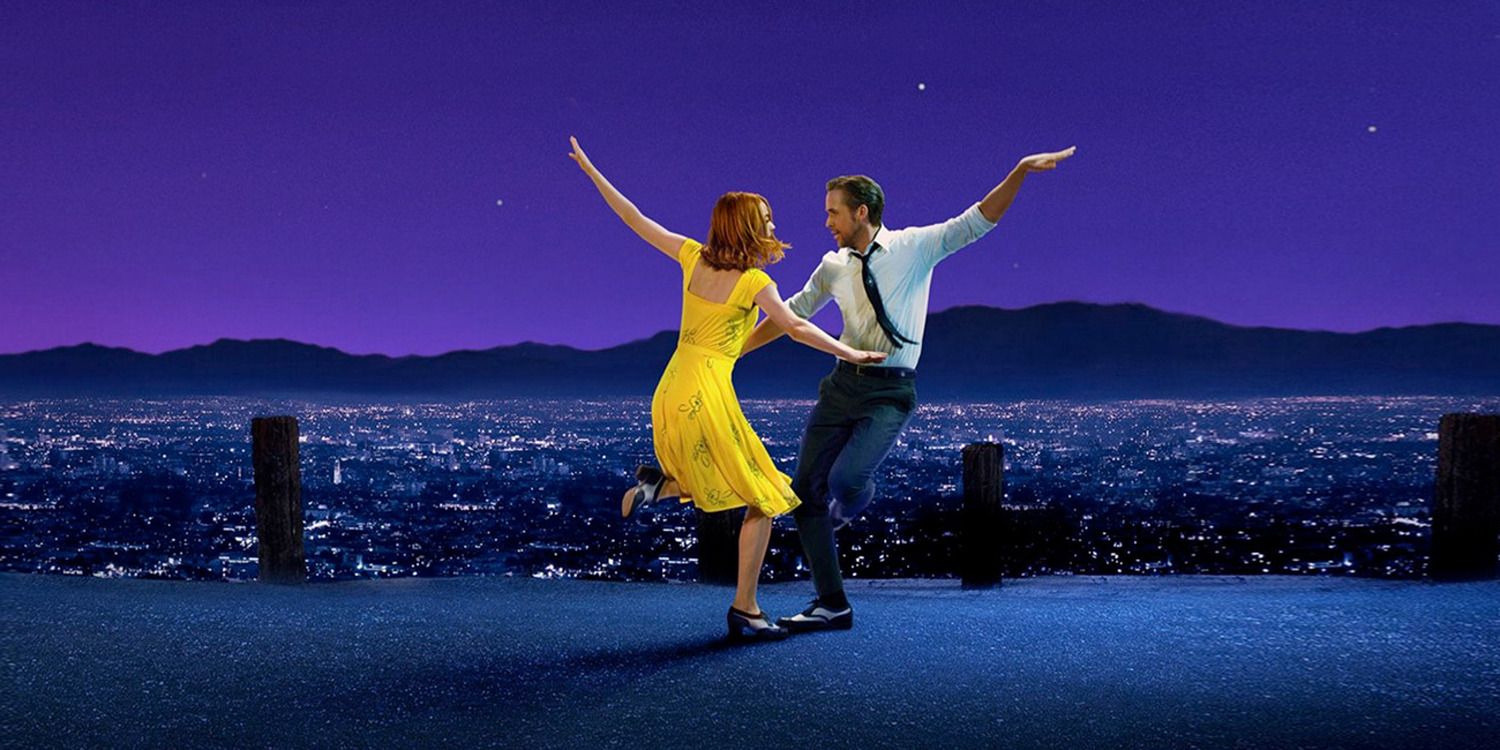The Big Picture
- The Academy Awards have a category for Best Original Musical, but it has remained empty because there haven’t been enough qualifying films.
- To be eligible for the Best Original Musical category, a film must be an original musical with at least five original songs that further the storyline.
- The division between musicals and other genres in the scoring and musical categories at the Oscars has often been complicated, with rules and categories changing over the years.
Oscars categories come and go. It isn’t rare for new categories to be introduced and old ones to be discarded when it comes to the Academy Awards. In 2021, for instance, the now-defunct Sound Mixing and Sound Editing categories were merged into Best Sound. Meanwhile, 20 years prior, in 2001, the Academy of Motion Pictures Arts and Science introduced the Best Animated Feature category, which has since then honored films like Shrek, Spirited Away, Toy Story 3, and, most recently, Guillermo Del Toro’s Pinocchio – movies that would, at least for the most part, have certainly been forgotten without a league of their own. But the Oscars have a category that was once introduced but never presented. A category without winners or even nominees. Yes, there is such a thing as an Oscar for Best Original Musical.
Since 2000, there has indeed been such a thing as a prize for Best Original Musical at the Academy Awards. So how come we’ve never heard of its very strong contenders? How come cinematic achievements such as Chicago, which took home the prize for Best Picture in 2003 haven’t been awarded this prize as well? Well, it turns out that things are a little more complicated than that. To compete in the Best Original Musical category, a film must indeed be an original musical. This means that it cannot be an adaptation of a previous work nor a feature entirely based on previously composed hits by a certain Swedish pop group. Any contender for the Best Original Musical category must be a musical created specifically for the screen, with “not fewer than five original songs (…) by the same writer or team of writers, either used as voiceovers or visually performed,” according to the Academy’s rulebook. That’s where things get tricky. You see, ever since the inception of the category, the Academy has been having a tough time gathering enough movies for a competition to be held.
The Color Purple
A decades-spanning tale of love and resilience and of one woman’s journey to independence. Celie faces many hardships in her life, but ultimately finds extraordinary strength and hope in the unbreakable bonds of sisterhood.
- Release Date
- December 25, 2023
- Director
- Blitz Bazawule
- Rating
- PG-13
- Runtime
- 140 minutes
- Writers
- Marcus Gardley , Alice Walker , Marsha Norman
How Has the Academy Awarded Musicals in the Past?
This hasn’t always been a problem. Up until the 1960s, at least, before movie musicals began to fade out under the gritty realism of New Hollywood, films like Singin’ in the Rain, The Sound of Music, and Disney classics like Cinderella and Alice in Wonderland guaranteed a steady supply of song-filled projects made exclusively for the screen. However, this doesn’t mean that the Academy has ever had an easy time honoring these movies. The history of the scoring and musical categories at the Oscars has always been complicated, and it all began back in 1935.
At the 7th Academy Awards, the first trophy for Best Scoring was given to One Night of Love, a musical directed by Victor Schertzinger and starring opera singer Grace Moore. Featuring classic arias as well as traditional Italian tunes, the movie had but one original song, the titular “One Night of Love,” written by Schertzinger, a former concert pianist, with lyrics by Gus Kahn. Still, it isn’t hard to understand how such a score could become the night’s big winner. At the time, many of the nominees, after all, were more about arranging pre-existing classical music than about creating a new score from scratch.
This, however, became a problem only a few years later, in 1938, when musical director Charles Previn won for One Hundred Men and a Girl. The movie has a score made up entirely of pre-existing classical compositions and doesn’t even feature a composer in its credits, and this seems to have been a last straw. In 1939, a new category was introduced: in addition to Best Scoring, there now was a prize for Best Original Score, won by Erich Wolfgang Korngold for The Adventures of Robin Hood.

This 1930s Musical Shows That James Cagney Is More Than Just a Gangster
Cagney killed by song as well.
Things changed again in 1942. The Best Scoring category was squandered, and Frank Churchill and Oliver Wallace became the first recipients of the award for Best Scoring of a Musical Picture for their work in Dumbo. They were up against nine other contenders: All-American Co-Ed, Birth of the Blues, Buck Privates, The Chocolate Soldier, Ice-Capades, The Strawberry Blonde, Sun Valley Serenade, Sunny, and You’ll Never Get Rich. Opposite to the Best Scoring of a Musical Picture category was Best Music Score of a Dramatic Picture, which was one by Bernard Herrmann for All That Money Can Buy.
Up until 1963, the Academy upheld a division between dramatic films (and sometimes comedies) and musicals, with the categories changing names and definitions, but with the gist of it remaining similar. In between the early 1960s and the mid-1980s, though, the focus shifted to separating original from adapted scores: Lawrence of Arabia won in 1963 for Best Music Score – Substantially Original, while The Music Man took away the trophy for Scoring of Music – Adaptation or Treatment. Up until 1985, the categories changed names a lot – Best Original Score, Best Original Song Score, Best Adaptation Score, etc. – but, again, the basic idea remained the same: keeping the original creations for the screen separated from the adaptations of previously composed scores.
When Did the Oscars Introduce the Best Original Score Oscars Category?
But, in the 1980s, the Academy seemingly got tired of honoring adaptations, at least as far as music was concerned. So, a single category remained: Best Original Score, devoted to movies with compositions made specifically for them. And when Maurice Jarre won for his work in A Passage to India, it all seemed just fine and dandy. The same thing happened when John Barry won for Out of Africa in 1986, Herbie Hancock won for ‘Round Midnight in 1987, Ryuichi Sakamoto, David Byrne, and Cong Su won for The Last Emperor in 1988, and when David Grusin won for The Milagro Beanfield War in 1989. In 1990, however, a pattern began to emerge that got film composers all up in arms.
A year prior, the Walt Disney Studios had begun its now most celebrated renaissance with a little animated musical film called The Little Mermaid, and composer Alan Menken was recognized for his work with a Best Original Score statuette. In 1992, Menken won again for Beauty and the Beast. Then he won again for Aladdin, and, in 1995, it was Hans Zimmer’s turn to give Disney an Oscar for The Lion King. Out of six awards given for Best Original Score between 1990 and 1995, only two didn’t go to the House of Mouse: John Williams’ work on Schindler’s List and John Barry’s on Dances with Wolves.
“’People were voting for the songs, not the underscores [the instrumental music],” Alan Bergman, then chairman of the academy’s music branch, told The New York Times. “We felt that academy members outside the music branch didn’t distinguish between the two. So, when a score like The Lion King is competing against a drama like Forrest Gump, it’s apples and oranges – not in the quality of the score, but in the way it functions in the movie. There’s a big difference.”
To restore order, the Academy once again split the Best Score category in two, this time the Best Original Dramatic Score and the Best Original Musical or Comedy Score. Once more, composers were less than thrilled, with some feeling that the Academy simply couldn’t grasp that writing music for a rom-com isn’t that different from working on a drama, while not being quite the same as composing for a musical. Nevertheless, the Disney hegemony began to quiet down: between 1996 and 1999, Pocahontas (scored by Alan Menken and Stephen Schwartz) was the only Disney film to win Best Original Musical or Comedy Score. The others were Emma (Rachel Portman), The Full Monty (Anne Dudley), and Shakespeare in Love (Stephen Warbeck).
The Academy Created the Best Original Musical Category in 2000
But, in 2000, things changed again, with the Academy deciding to put comedies and dramas side by side in the Best Original Score category. Musicals got their own category – Best Original Musical. To compete in the category, a movie must have the aforementioned minimum of five original songs, all of which “must be substantively rendered, clearly audible, and intelligible, and must further the storyline of the motion picture. An arbitrary group of songs unessential to the storyline will not be considered eligible,” as per the Academy’s rulebook.
Sounded like a dream scenario, but, right off the bat, the division proved problematic. In its previously cited 2000 article about the change, The New York Times points out that two extremely popular animated musicals released in 1999 were ineligible for the Best Score category: Tarzan and South Park: Bigger, Longer and Uncut both had an underscore of about 45 minutes of music, which is not enough for the Academy to consider their music an original score. At the same time, being the only two musical entries of that year, they were unable to compete for Best Original Musical. According to the Academy’s rulebook, there must be at least ten qualifying films for a category to be presented.
Back in 2000, Mark Mancina, the composer behind Tarzan, told The New York Times that this new category would discourage the production of new musicals. “The studios aren’t going to be jumping on the idea of making a movie that can’t be nominated for an Oscar,” he said. While this prophecy wasn’t exactly fulfilled – the 2000s saw a new rise in musicals with movies ranging from Moulin Rouge to La La Land -, the Best Original Musical category remained without sufficient entries. Despite having been nominated for Best Picture in 2002, for instance, Moulin Rouge wouldn’t be eligible for Best Original Musical due to it being a jukebox film. The aforementioned Chicago was originally a stage play, as is last year’s The Color Purple. La La Land, Encanto, The Greatest Showman, and Moana are all movies that could’ve been nominated in the category, but there just aren’t enough of them coming out.
So what could the solution be? It isn’t rare for the Oscars to recognize different kinds of films based on genre or medium. That’s the case both for the Best Animated Feature and the Best Documentary Feature categories. And much like documentaries and animations, musical movies are unique enough to merit a category of their own. However, it isn’t fair to stop them from competing in the Oscars just because they are so few and far between. Perhaps there should be a change to the rules regarding the Best Original Musical category or even the Best Original Score one. Maybe a change that would allow different kinds of musicals, even jukebox features and stage adaptations, to compete against one another. Whatever the case, the fact remains that these beloved and sometimes even despised films deserve more than what they are getting.
The Color Purple is streaming on Apple TV+ in the U.S.
Watch on Apple TV+






